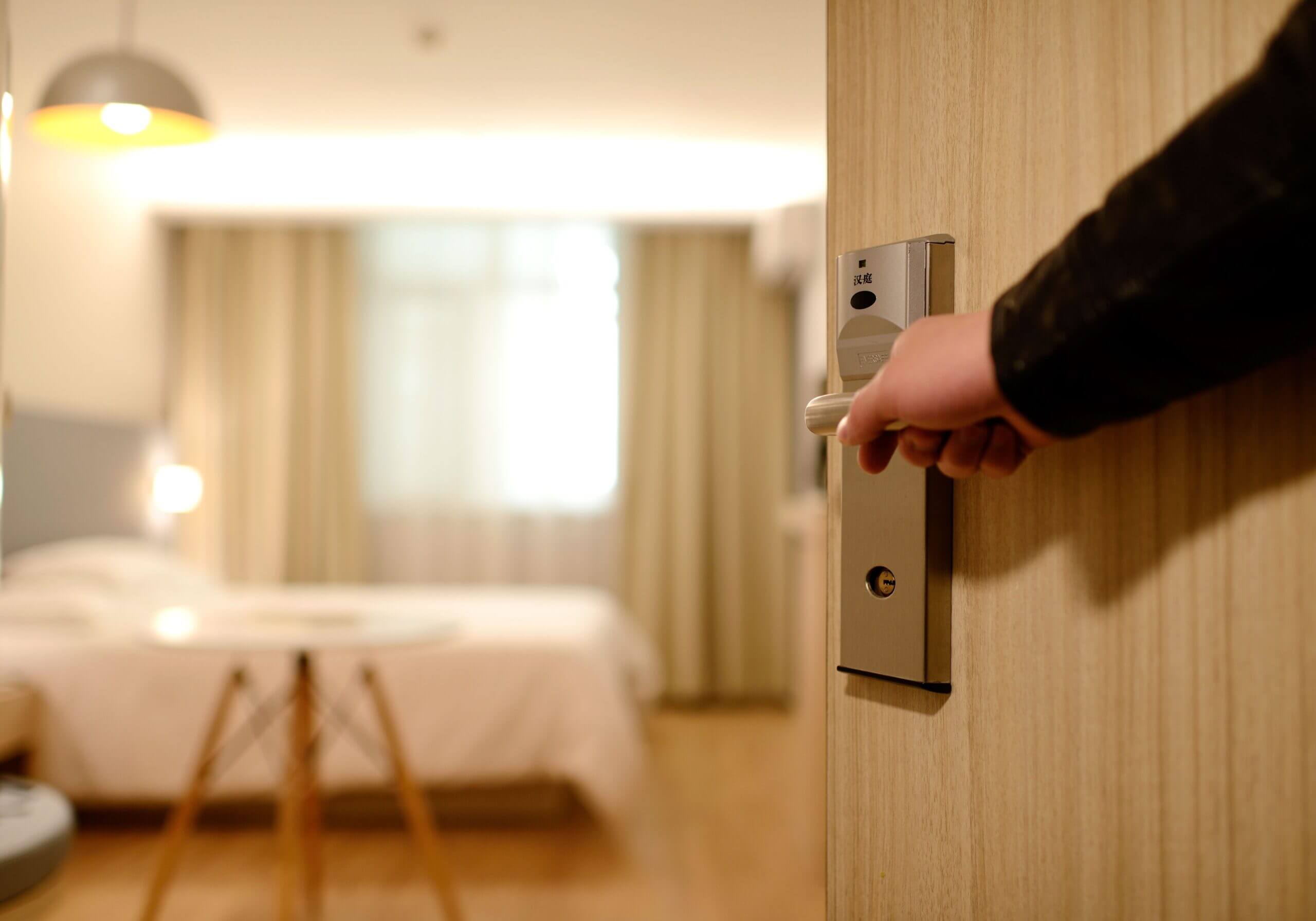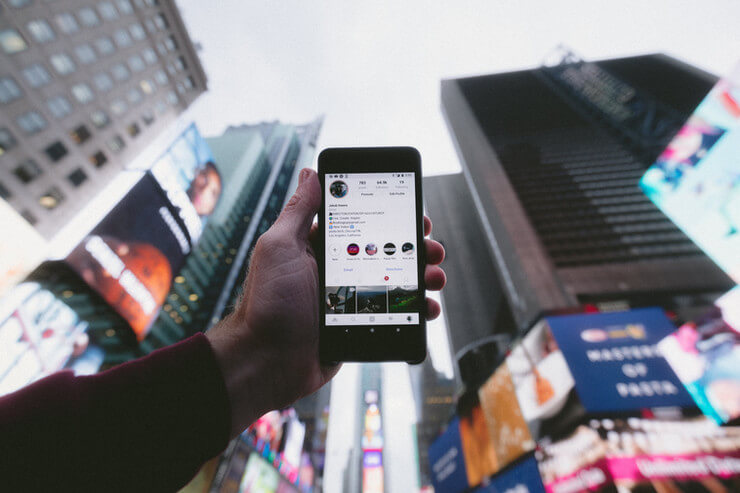
by Jana Johnson | Mar 9, 2023 | Sales
Every hotel is unique along with the strategies that work to fill the hotel. When considering the options that will drive the most revenue, group bookings should play a significant role in your revenue management strategy.
What is Group Business?
Simply put, group business is a signed contract selling rooms and meeting space to corporate or leisure groups. Group rates are typically discounted since the group is purchasing the rooms in bulk guaranteeing X number of rooms or more per night for an agreed date. Targeting group business is the best way to maximize your occupancy with one low negotiated rate.
Why is group business beneficial for your hotel?
Group bookings are about offering the best package rates to your potential guests. This is advantageous to your hotel specifically for the following 4 reasons:
Reduce Operational Costs
When you are running a hotel, every dollar matters—especially when operating with a lean staff or no on-site sales manager. Increasing group revenue for the hotel means that you can spend less time sourcing your hotel and save money on negotiated room rates. By developing a plan to book and rebook group business, your staff will not have to focus much-needed time and effort on marketing and sales for single room transactions.
Predictable Revenue
If the experience was a success, the group or business travelers often return to the same location. Meeting planners and travel managers appreciate consistency and the advantage of having negotiated rates and discounts with hotels. Discounted rates allow travel managers budgets to stretch farther and affords them the ability to rebook with ease the following year and avoid the hassle of shopping for new hotel rates. Also, group business typically books far in advance, bringing you less stress and revenue planning for the coming months.
Trip Add-Ons
Unless the group is traveling just for one day, they may be thinking of extending their trip into a mini vacation. Often travelers extend their trip or come a day early. With the flight paid for by their employer, it’s a great opportunity for the business traveler to invite family and extend the trip to make the most out of their travel experiences without incurring a lot of extra travel costs. This also gives you the ability to upsell additional services that your hotel may offer.
Lower Cancelation Rate
Individual travelers may often cancel travel plans last minute due to illness or change in plans, but it is less likely that a sporting event or business meeting will be canceled. By including group business in your hotel’s revenue management strategy, you can more accurately forecast room bookings.
Considering group business for your hotel will require you to do a deep dive into the data to consider future demand projections along with room inventory. You are going to want to ensure that you book the right piece of business for the right guest at the right time and for the right price. The goal is to make sure that group bookings don’t jeopardize revenue growth but boost revenue and add the potential for future business.

by Jana Johnson | Feb 8, 2023 | Marketing, Sales
We’ve all had that “aha” moment. You know this is the time when something seems so obvious after the fact. In sales, it’s often said, if only I knew that before, I could have landed that deal!
The question is, would we really change the way we do business if we experienced that “aha” moment? I’m sure the answer would be yes if it led to making more money and bringing in more business.
But how can we make these “aha” moments more of a reality and less of a dream? The way to do this is by understanding when to make the most important sales calls and what to get out of these calls.
Follow up on Business You Didn’t Land
Once you have been turned down, it’s easy to give up on that potential customer. But this is the time you need to build a trace system and follow up with these potential customers. It really is the best time to learn and can help you tailor your future approach to talking to potential clients.
Technology has made it simple to organize client information and remind you when it is time to place a call. Consider using one of the best free CRM software programs as reported by Business News Daily, like Hubspot CRM, Zoho CRM, Insightly, or Salesforce.
These programs will help you organize your lead data for your follow-up calls.
Ask Your Potential Guests for Feedback
There could be many reasons your hotel did not align with group needs for a particular event and so you lost the business. If this happens you need to ask your customers for feedback. This is probably one of the hardest things to do in your business, but you will be glad you did.
Was it your pricing? Was it due to lack of meeting space? Maybe your hotel is not close enough to restaurants or entertainment. There may even be something you could change next time. For example, if your hotel was lacking shuttle service, maybe you could price out transportation and offer it as a one-time service.
The potential customer has nothing to lose by providing constructive criticism and you have everything to gain. Especially if “no” is a common word you are hearing from potential group bookings.
Re-Engage with Lost Leads
Leads go dark for many reasons. Your contact may be overwhelmed at work but remain interested in your hotel. Chances are, they will still remember you and you don’t want these leads falling off the grid after all.
The follow-up call shows you are interested in their future business. If you know they selected to go with another hotel, maybe the hotel they selected missed an important detail or they didn’t enjoy their stay.
Your follow-up will make an impression. If their event at the chosen locale wasn’t successful, then this could set you up for possibilities in the future. You may not get a commitment during this phone call, but nurturing that lead over time can turn a “no” into a future booking.
Turn Rejection into Opportunity
Create an action plan for future follow-ups. Your goal here is to stay at the forefront of their mind when a potential client is considering where to hold their next meeting.
Trace out another call in a few months. Maybe you have completed a renovation at your hotel. Or, maybe you just hosted a group meeting and you have a success story to share that is a potential idea for your lead.
You want them to remember you and your hotel so that your hotel is at the front of their mind the next time they are planning the next group event.
Communicate with Multiple Mediums
The bottom line is potential business doesn’t come knocking. You must work for it. Your business is the business of sales and while we can consider a small percentage of our business to come from direct phone calls, most of the time you are going to get your business by the effort you put into your follow-up.
Lead nurturing is all about following up. Sometimes it may take multiple calls to make contact, but the point is to keep trying. And, if your phone calls aren’t working, consider email.
Find other ways to keep your hotel in the running for future events. Connect on social media with popular apps for business such as Facebook or LinkedIn. Continue to promote your unique competitive advantage to stay at the forefront of their mind.

by Jana Johnson | Jan 18, 2023 | Sales
Providing superior accommodations is what hoteliers strive for when opening a hotel. But at the end of the day, running and filling a hotel is a business, and that means you need to sell the most rooms you can to be successful.
As you implement sales strategies to increase the profitability of your hotel, you may be exploring new methods to bring in guests and increase occupancy. There is no magic bullet to optimizing hotel revenue, but you may want to consider increasing your base business as the number one sales strategy on your list.
Your hotel needs base business to survive the ups and downs of the ever-fluctuating economy and to continue to rise above the competition. Here are a few of the benefits you will realize when you emphasize sales strategies designed to increase base business at your hotel.
Income You Can Count On.
Repeat business means money you can count on weekly, monthly, and yearly. Maybe your hotel has those perks every business traveler likes, such as outlets in multiple locations in the room or charging stations and luxurious bath amenities. Whatever the reason, customers return if they like what you have to offer. Monthly bookings by loyal customers allow you to plan on sales revenue coming in the door, which has a positive effect on your entire business.
Combat a Fluctuating Economy.
Your repeat customers will pay you regularly allowing your business improved cash flow. Also, repeat customers care about their reputation. Remember, you’ve already built the relationship. They care enough to make sure you are paid and paid on time. These are the customers you can count on.
Spend Less Time on Guest Administration.
Just like an old married couple, you begin to know how a repeat customer thinks, and what makes them happy. If this customer stays often and is part of the rewards program, you don’t have to spend time on the amenities that make them happy. The system data should already be in place so when this customer makes their reservation, it will trigger staff to do something to make their stay more enjoyable, like having bottled water delivered to their room. These systems are already in place, which means a time-saver for management.
Word-of-Mouth Referrals.
Consumer research shows that 89% of consumers are likely to use a business based on its online reviews. Build the ultimate experience for your customers and they will tell all their friends, colleagues, business partners, Facebook followers, and… you get the picture. If they like your hotel, they will refer everyone they know, and that is the easiest way to get new business.
Improved Insight into Guests’ Needs.
It always comes back to one keyword: communication. Train your team to communicate with guests to reduce errors and learn more about their travel needs. Learn to bond with your guests and strive to make sure each stay meets and exceeds their expectations. Gathering feedback shows that you listen to your guests and value their input. This leaves a positive impression which keeps them coming back to stay time and time again.
Overall, revenue can be increased by building your base business. It’s great to have your hotel full during the summer months, but you can’t make money booking four months out of the year. Building on your base business is what feeds the hotel and makes it profitable for the rest of the year.

by Jana Johnson | Nov 30, 2022 | Sales
Every hotel is interested in learning the same information about their guests: how they came to book your hotel, how long they are staying, are they traveling for leisure or business, and if business travel, how many other company employees are part of the same group.
In a perfect world, you would know all the details about your guests checking in.
Knowing this information can help personalize the hotel stay for your guest and in turn, help generate repeat business.
Some of the tracking mechanisms you have in place at your hotel may even be providing you with some of the key data. Successful collection of guest data depends on implementing a few standards across your hotel team. It’s important to put these standards in place to ensure you are capitalizing on your hotel’s success.
Gathering Client Information During Booking
So many components of a hotel are important but keeping your team consistent with the data it collects, is number one. Utilizing a checklist can help keep the team on track and ensure that you capture the most important details such as:
- Company name
- Company profile – is there a contact name and email address?
- Rewards / loyalty programs – If there is a rewards number, look up their rewards number in the property management system to see if you can learn more information on the customer. You can also learn about guests’ travel habits and preferences
- Special requests
Review of the Arrivals List
Are you prospecting your arrivals list? If not, you could be missing the single most important thing that could help you drive business to your hotel. A quick review of the arrivals list every morning, can ensure you are not missing any key guest data. If data is missing, take it as an opportunity to ask the guest for more information. This will also affirm that you value their stay and want to perfect their stay.
Review How Your Reservations Are Coming In
Let’s start at the beginning by meeting directly with your reservations team. Some of your tracking mechanisms in place may be successful in giving you intelligent data but the team that takes the calls should be your number one resource. How are the reservations coming in? Are they going through Online Travel Agencies (OTAs) such as Expedia or Booking.com? Are they going through a local travel agency or a large Travel Management Company (TMC) or Consortia?
If so, you’ll want to jump in quickly to compete for guest loyalty by tailoring your future marketing using guest data to encourage them to book directly through the website instead of going through a middleman.
Go Straight to the Booking Source
If your guests are booking through a third party, such as a travel agency, contact that source to learn more information. Call and speak to the source and introduce yourself and thank them for the business. Explain you want to know who their contact is at the company so that you may find out more about their travel patterns.
Track Data and Plan
Guest data is critical in understanding travel patterns, but it won’t be very useful without a way to refer to it. Plugging the data into a Customer Relationship Management (CRM) database or an Excel database for easy reference will help you organize and sort the information so that it’s useful. Using this information will not only help you learn about the guests that stay at your hotel, but also how you can customize personal marketing messages that will speak their language.
Get Your Hotel in the Running for RFP Season
If you notice a significant number of room night bookings from one company, then you could be a preferred hotel on their list. Over 100 rooms in a year should also get you a seat at the RFP table that happens annually with the corporate travel team.
Data collection is one of the crucial tasks of a hotel. Gathering guest information and using it wisely can help you understand where your leads are coming from and how to best approach and go after new business. Track this information and consistently review it for booking patterns to help you take your bookings to a new level.
GRANT Hospitality offers a customized sales plan to help hotels reach their full sales potential. If you’re ready to learn how we can help you reach your goals, contact our team for a free consultation.

by Jana Johnson | Oct 27, 2022 | Sales, Travel
You work hard to promote your hotel and more than likely you spend a lot of time and money on advertising each year. Advertising your hotel is a big part of the business, but so are referrals.
Managing your referrals is a great way to gain new business and is also a great reason to communicate with the clients that provided the referrals.
Take advantage of the times when things go really well for a meeting or group stay. Your clients receive great value from the services your hotel provides, and you want other people to know about it. Read on to learn the five ways to fuel your business growth with referrals.
- Capitalize on the good experiences. Send follow-up email after group stays or meetings. Check in to see how their stay was. Did they have a mind-blowing experience? Did they enjoy the breakfast or the bath amenities provided? Thank them for their business and ask if there is anything you can do to improve. Not only does that make them feel special, but it’s also a great tool for gathering information and building your relationship and client database.
- Review Social Media. People love to talk these days about all of their experiences—both the good and the bad—and, they love to share it with the world via social media. Make sure your hotel is tapped into the social media apps for business such as Twitter, Facebook, LinkedIn, Instagram, Pinterest, and Yelp. This is a great way to see what people are saying and for staying stay in touch with your customers on another level.
- Right the wrongs. Unfortunately, things happen and sometimes customers may have an unfavorable experience. Whether it’s a situation that is beyond your control or something you can make better, apologizing, offering a complementary or discounted stay, can turn a negative experience into something positive and keep your clients’ business.
- Face-to-face communication with your customers. Take advantage of the face-to-face contact with a customer. Plan to be available upon arrival to thank them for their stay. Find out estimated time for departure and find out for yourself how they enjoyed their stay. And if a face-to-face won’t work, deliver them cookies, or a coffee card to a favorite café in town along with a personal note.
- Thank them for their feedback and referrals. When a referral comes through, find out the source and give credit where credit is due. A simple gesture like a handwritten note, or quick email of appreciation acknowledging the referral will keep the referrals coming in time and time again.
Those are just a few ways to make your clients’ experiences more memorable and ensure the possibility for future bookings.
Do you have unique ways you’ve shown your clients that you appreciate their business? Reach out and share some of your own experiences with client referrals and gestures of appreciation.

by Jana Johnson | Aug 25, 2022 | Marketing, Sales, Travel
If you manage a hotel or are new to owning a property, it doesn’t take long to recognize that the hotel sales position is one of the most integral parts of a hotel’s success.
The sales manager is responsible for generating room nights and increasing revenue during peak times plus building demand during the slow seasons.
This can be a challenge for even the most seasoned sales managers. The process takes a considerable amount of strategic planning, creativity, and forward-thinking to balance meeting sales goals while skillfully representing the hotel.
In this fluctuating environment, it is important to keep in mind that sales is a learned skill. An effective sales manager should be able to produce results despite hotel challenges and market conditions. This is accomplished by practicing a few habits for sales success.
Know Your Hotel and Your Competition
For sales efforts to be effective, you need to know the features, benefits, and weaknesses of your hotel as well as those of your competitors. For example, can you offer concessions like free breakfast, airport transportation, or a one-bedroom suite to give you that competitive edge? Superior sales managers understand the hotel at all levels and how to get creative and outshine the competition.
Be Open to New Technology
There are many ways to reach your end goal of driving occupancy. Successful sales managers try new strategies and the latest technology for reaching their target audience. Test drive new forms of social media to help reach your potential guests. Consider trying sales engagement platforms to help you create email templates and email blasts to reach multiple people at once. It’s also key to consistently review your strategies and question the best ways to spend your time.
Have Integrity and Authenticity
What separates the average hotel sales manager from a successful one? Integrity. Clients respond to genuine people with a core attitude of wanting to help, whether they get the sale or not. Be sure to always do what you say you will. You’ll want to develop a style of authenticity that builds trust, so your clients know you have done your best for them. It also assures them if any problems arise with the booking, you will be there to return their calls promptly.
Listen For Details
You may have heard the phrase, “Be interested, not interesting.” An enthusiastic attitude about your hotel is key, but before jumping in right away with all the features and benefits of your hotel, listen to what your clients’ needs are. Knowing how you can accommodate your clients’ needs will help you gain the edge over the competition. It’s important to ask probing questions and gather information to confirm if you are the right fit. You can never ask enough questions. This is vital in anticipating future needs—something all clients appreciate!
If you are looking to find wins in the competitive market of hotel sales, adopt these habits daily. Committing to a new behavior takes time and practice. Start by initiating one new strategy at a time and celebrate your small successes.

by Jana Johnson | Jul 21, 2022 | Marketing, Travel
Hotel sales teams should keep in mind the benefit of using local surroundings when working on filling a hotel and driving revenue. Gaining a pulse of the local scene will not only draw in guests from nearby companies, but it can also help drive revenue referred directly from locals and local businesses.
So how can your hotel leverage its resources locally? It’s going to take a combination of grassroots marketing plus online advertising. These efforts may include sales calls, word of mouth, free social media campaigns, and even referral bonuses.
The idea is to connect with your local market and build community relationships to help market your hotel and services. To determine the best approach, here are three questions hotel marketers should consider when looking for leads in your backyard.
Who are the companies in my backyard?
Take the time to meet key companies and event planners in your marketplace so that you will be thought of for business meetings and events. Drawing from the local businesses will give you an idea not only of potential corporate travelers but also of leisure travelers coming to the area. Coordinate with top vendors that surround the hotel and put together enticing packages that cannot be found at competitor hotels.
What type of business comes to the area?
It’s about understanding where travelers are visiting near your hotel so you can provide the ultimate experience. The Convention and Visitors Bureau (CVB) is often an underutilized source, but a great place to start networking and gathering information. Creating a good relationship with your local CVB will keep your hotel front of mind when the CVB works with event planners and group organizers from other locations. Also, the CVB can be a great resource to learn what companies maybe be relocating to the area and may need group travel rates.
What’s happening in the future?
No matter the time of year, there are most likely always weekend events, concerts, workshops, seminars, and entertainment happening in your area, which could be a source of revenue for your hotel. Checking in with apps such as Eventbrite and Ticketmaster can help you search by city, dates, times, locations, and maps.
Encourage your sales team to create a local event calendar that lists all the local happenings. This will help you stay on track and help you determine your target audience for marketing. Consider partnering with a local organization to offer unique packages that give your hotel an edge-up on the competition.
Think of your local community as an extension of your hotel’s sales and marketing team. With a targeted approach, your efforts could increase exposure and facilitate partnerships to help drive new and loyal business to your hotel.

by Jana Johnson | Jun 9, 2022 | Sales
The success of your hotel depends on many factors including a unique guest experience, location, customer service, guest feedback, and a social media presence.
A successful hotel also understands the importance of sales efforts and dedicating time each day to capture your fair share of the market.
With today’s workforce challenges, hiring a dedicated salesperson may not be an option for many hotels. This often leaves putting your sales efforts to the front desk staff, or the general manager, who most likely doesn’t have the time or resources to be consistent or proactive with sales efforts.
This is where hiring a remote hotel sales service team can be a powerful resource and elevate sales presence in your market.
Increased Efficiency
Allowing an experienced sales team such as our team at Grant Hospitality to focus on prospecting, networking, building relationships, and gaining market share, decreases the administrative strain on your front desk staff, general managers, and team. The sales team works with existing customers, potential prospects, and key internal teams, like revenue managers. Working with revenue managers is extremely important for setting rates to meet the hotel’s strategic goals and maximize profitability. This allows your team more time to focus on customer service. It also provides hotel owners and operators peace of mind and the time to focus on operations and day-to-day activities.
A remote team can streamline sales processes while understanding the needs and issues of meeting planners, group business, the RFP process, and complex intricacies involving corporate accounts and travel.
Meeting regularly with your remote sales team helps a “green salesperson” or newly hired Director of Sales gain training and a better understanding of the big picture of hotel sales. Utilizing regularly scheduled sales meetings with hotel management staff, reviewing long-term strategies as well as guiding the hotel on how to make the most of their backyard potential can be key in training and strengthening existing staff’s knowledge and skills in selling your hotel.
Seasoned hotel sales professionals also add value by utilizing established key industry relationships and techniques for quickly finding and uncovering key decision makers and potential business in your area.
Cutting-edge Technology
Technology is key in keeping your hotel fully booked. Unfortunately, many hotels do not have the time and infrastructure in place to learn the latest hotel sales tools, train staff, and manage software updates. A remote sales team uses today’s current technology to connect with corporate and group business leads to take advantage of opportunities in the marketplace.
Remote teams have access to multiple channels such as Lanyon, Cvent, LeadGibbon, and Construction Journal, that help surface potential leads and contacts for those companies.
Lower Overhead
The most obvious benefit of a remote sales team is it can be an extension of your team without the overhead. Also, most hotel sales efforts can be done through outbound calls, online research, and email, which means sales meetings can also be held virtually.
Whether you are opening a new hotel, an independent boutique hotel, or managing a branded property with limited staff, sales efforts are important to the overall success of your hotel.
Don’t let leads slip away! Great salespeople will be your hotel ambassadors, community builders, marketers, and analysts always utilizing cutting-edge resources to land business for your hotel.
Utilizing a dedicated remote hotel sales team that possess the expertise and proven ability to get results, can ease the stress of filling your hotel and increase your bottom line.

by Jana Johnson | Apr 12, 2021 | Travel
With multiple vaccines here, the end of the pandemic is now visible and no longer just a vision or dream. Everyone is ready for a vacation, and the vaccines provide a new sense of optimism to plan trips.
Hotels need to consider a plan with strategies on how to capture these travelers.
Hotels and the hospitality industry should feel optimistic that the recovery stage is here and moving quicker than forecasted for 2021. Here is some positive news with statistics exemplifying we are moving forward rapidly, and consumers are excited to travel again.
1.Traveler Confidence Gains Momentum:
A recent survey put out by Global Business Travel Association shows that after receiving the COVID-19 vaccine, 79% of members and stakeholders feel “comfortable” or “very comfortable” traveling for business. It is reassuring to hear discussion around business travel resuming with safety efforts, including a consistent approach to travel restrictions, pre-testing, and the possibility of vaccination passports.
2. #Google: Searches for Travel are Picking Up:
Google reports signs of travel and event interest picking up, with searches for “resorts near me” (80% YOY), “travel to” (100% YOY), and “wedding suite for” (200% YOY) growing. This is the perfect time to utilize your social media platforms to entice and engage with potential clients. By communicating directly through social media, hotels can be more agile in their responses and better able to personify the hotel and brand. With social platforms like Facebook and Instagram, guests are more likely to engage and ask questions after seeing promotions and specials.
Hotel Action Plan:
There were so many wedding plans changed and canceled in 2020, filling up all high-demand dates for 2021 and beyond. With RFP’s usually happening earlier in the year, be prepared with your online strategies, as brides stream through sites looking for their perfect lodging with a honeymoon suite or added amenities for their special event.
3. Vaccines Lead to Surge in Travel Planning
The next few months show promise of a surge in travel according to Longwoods International’s latest research. Longwoods indicates as many as 81% of Americans plan to travel within the next six months, marking this as the highest rate of travel since March 2020, when the pandemic started.
With this sparked interest in travel, which is anticipated to be especially high this summer, hotels need to have strategies capturing these enthusiastic travelers and adjust revenue optimization tactics as they book. Working closely with your sales teams and keeping a pulse on the competition will be beneficial and key in maximizing rate while driving occupancy.
Hotel Action Plan
The strategy for hotels is to grow weekend and leisure business across channels and traveler touchpoints. This includes creating packages on social media channels like Facebook, LinkedIn, and promoting on your website for weekend vacations and activities, such as a Staycation, Millennial Inspired Outings, Weekend Getaways, Family Getaways, and Special Corporate Extend Your Stay Promo’s to raise awareness of weekend offers and drive bookings. Through social media outreach and email campaigns, marketing these packages will drive both leisure and business travelers to reserve a package or book a stay.
4. Lodging Economics
According to Lodging Econometrics, the Extended Stay Segment saw tremendous growth long before COVID; in fact, these hotels are responsible for 24% of hotels under construction. Extended Stay Hotels with Choice Hotels and IHG and their brands like Mainstay Suites, Suburban Inn Woodspring Suites, Staybridge Suites® Hotels, and Candlewood Suites®have been the bright spot of the COVID crisis. The extended-stay market’s growth will continue as travelers are accustomed to the mini- kitchenettes and the freedom they offer.
Hotel Action Plan
Hotels need to continue focusing on essential service workers and build relationships for long-term bookings from government agencies. These accounts are now looking for long-term partnerships in mid-size hotels like Comfort Suites, Quality Suites, Holiday Inn, and Hampton Inn, in addition to extended-stay properties. Also, 1440 Multiversity has generated more than $1 million in donations to fund scholarships to provide essential workers time to recover and recuperate. With corporate donations on the rise, hotels should continue working with non-profits and maintain strong relationships with insurance companies.
5. Corporate and Group Travel is Positive
As vaccines continue, the earlier projections of a more substantial return of corporate and group business could be seen into the latter half of 2021. Group bookings that were canceled previously are also starting to rebook. Group business is coming back earlier than many industry observers might expect with positive news. Leisure and transient still make up the greatest demand for Hyatt hotel bookings, with 70% leisure transient and 30% business transient.
6. Meetings Return
Recent data put out by Knowland has some good news for hoteliers as meetings are growing in size and corporate meetings are growing in frequency. Next fall’s meeting industry is getting back to full swing. Things are starting to look up and will only continue as more and more people are vaccinated.
Hotel Action Plan
With new car line introductions by luxury car brands, this business type brings new accounts for hotels to prospect. Consider expanding your market share to target this business. Car companies will be looking to test cars in different climates and locations, targeting environments with high heat indexes and humidity, as well as frigid temps and high altitudes. Think about refocusing your efforts to gain this market share, considering the option for corporate training for car companies, engineers, and mechanics.
With these six signs that travel is rebounding with travelers ready to explore this year, hotels must shift their action plans, strategize, and prepare for a fast and furious unleashed stream of bookings starting shortly. Hoteliers need to prepare now and get their no vacancy signs ready to be hung again.

by Jana Johnson | Feb 22, 2021 | Marketing
As travel demand strengthens, be sure to target the right audience with the right messages. Incorporating Instagram into your marketing plan could help you do this, with little to no marketing budget.
Instagram is one of the top 10 social media platforms available and with over 1 billion monthly active users, and it is made for hotels. It’s the platform for inspiring experiences and to post visually beautiful images.
With the way Instagram emphasizes the use of photos, it seems like a likely choice to use this platform to market your hotel. You can share the highlights of your hotel, create brand awareness, and encourage an atmosphere for guests to share their experience.
So, if your goal this year involves building your hotel brand, then let’s look at how to market your hotel on Instagram and how to be successful doing it.
Create an Easy-to-Spot Instagram Presence
First things first. Make sure your hotel’s profile is a business profile. This gives you the ability to place your profile under a category such as hotel, and will help target the right audience. Include all important information that makes access to your hotel easy including the phone number. In the about section of your profile, be sure to include an Instagram bio of your hotel with a direct link to the website.
By default, your location is generated by Instagram automatically. When someone posts a picture of your hotel and sets your hotel as the location, the content automatically goes under your location and is visible to anyone searching by location.
Once you have the basics set up, you’ll need to work towards creating an easy-to-spot Instagram presence.
Showcase Your Hotel’s Story by Sharing Images
Next, you’ll want to define your hotel’s unique selling points then strategize a way you can make this seen through photographs.
Is your hotel a boutique property with a theme? What about a luxury property with a high-end restaurant?
Once you’ve determined your ideal customer, you will want to create a branding strategy that will help you stand out. This means you cannot expect to create an isolated post and hope that this works. You will want to tailor your photos and content towards that, and stick to it.
A benefit of Instagram is how you can create the ideal image of your hotel through photographs. When posting photos of your hotel, be sure to showcase an experience. People are more likely to pay money to stay at a hotel that is Instagrammable, in other words worthy of sharing on social media.
Once you have the hang of posting photos, it’s highly recommended to take advantage of posting videos of your hotel on Instagram.
Some of the best ways to utilize videos to spotlight your hotel include:
- Rooms
- Amenities
- Food
- People with testimonials
- Local Attractions
Videos help promote your hotel in a friendly way without selling. They create an emotional connection for guests planning a vacation and give your brand a voice to tell your story.
Find Your Future Guests and Boost your Marketing with Hashtags
Targeting the right audience with the right messages will have a profound effect. If you are marketing to everyone, you will have a hard time finding, and keeping those high-valued guests.
Using a combination of letters and numbers preceded by a symbol, otherwise known as hashtags (e.g., #hotel) will help you find your key audience and increase the performance of your marketing. If you want to be seen on social media you will have to learn to use them to your benefit.
Here’s what hashtags can do for you:
- Help you get noticed and establish you as a brand leader
- Find an expanded audience by using popular hashtags your audience is already using
- Users can search for hotel criteria using hashtags relevant to their interest
- Make your content and photos more visible
There’s no right or wrong number of hashtags, but Hootsuite reports that the consensus is about 11 hashtags per post is good to start with. To help you find the right hashtag for your brand, use free search tools like All Hashtag or Ingramer Hashtag Generator to research what hashtags would perform best for your hotel and add them when appropriate.
Engage with Others
Just as you would engage with guests in your lobby, schedule regular time each week to engage with guests online. This means answering comments and questions on your own feed, similar to how you respond to reviews.
Another option is posting fun text or contests to encourage engagement with your followers. Post a photo of your hotel, and ask followers to cast a vote. Or even pose questions under photos to encourage comments.
And don’t forget, people on vacation love to take Instagrammable photos! Be sure to make it easy for guests to share posts from your hotel. Afterall, it’s a free way to create awareness and build community!
Following the right accounts like a popular neighboring restaurant, could also help. Tag them on related posts and most likely they will reciprocate. Together you can help promote each other.
Just remember, the more engagement you give, the more you get.
Keep a Pulse on the Competition
What are other hotels doing to market themselves on Instagram? Locate hotels similar to your hotel’s business model on Instagram and review what they are doing it right, and wrong. Use that as a model for how you can develop a strategy for your hotel.
Put Your Plan in Motion
This will take some time, of course, but after putting these steps in motion, you will see how it will become easier to grow your targeted audience.
Instagram is simple and versatile. It’s a great way to make your hotel stand out from the competition and send the right messages to your future guests.
As travel demand strengthens, be sure to target the right audience with the right messages. Incorporating Instagram into your marketing plan could help you do this, with little to no marketing budget.
Instagram is one of the top 10 social media platforms available and with over 1 billion monthly active users, and it is made for hotels. It’s the platform for inspiring experiences and to post visually beautiful images.
With the way Instagram emphasizes the use of photos, it seems like a likely choice to use this platform to market your hotel. You can share the highlights of your hotel, create brand awareness, and encourage an atmosphere for guests to share their experience.
So, if your goal this year involves building your hotel brand, then let’s look at how to market your hotel on Instagram and how to be successful doing it.
1. Create an Easy-to-Spot Instagram Presence
First things first. Make sure your hotel’s profile is a business profile. This gives you the ability to place your profile under a category such as hotel, and will help target the right audience. Include all important information that makes access to your hotel easy including the phone number. In the about section of your profile, be sure to include an Instagram bio of your hotel with a direct link to the website.
By default, your location is generated by Instagram automatically. When someone posts a picture of your hotel and sets your hotel as the location, the content automatically goes under your location and is visible to anyone searching by location.
Once you have the basics set up, you’ll need to work towards creating an easy-to-spot Instagram presence.
2. Showcase Your Hotel’s Story by Sharing Images
Next, you’ll want to define your hotel’s unique selling points then strategize a way you can make this seen through photographs.
Is your hotel a boutique property with a theme? What about a luxury property with a high-end restaurant?
Once you’ve determined your ideal customer, you will want to create a branding strategy that will help you stand out. This means you cannot expect to create an isolated post and hope that this works. You will want to tailor your photos and content towards that, and stick to it.
A benefit of Instagram is how you can create the ideal image of your hotel through photographs. When posting photos of your hotel, be sure to showcase an experience. People are more likely to pay money to stay at a hotel that is Instagrammable, in other words worthy of sharing on social media.
Once you have the hang of posting photos, it’s highly recommended to take advantage of posting videos of your hotel on Instagram.
Some of the best ways to utilize videos to spotlight your hotel include:
- Rooms
- Amenities
- Food
- People with testimonials
- Local Attractions
Videos help promote your hotel in a friendly way without selling. They create an emotional connection for guests planning a vacation and give your brand a voice to tell your story.
3. Find Your Future Guests and Boost your Marketing with Hashtags
Targeting the right audience with the right messages will have a profound effect. If you are marketing to everyone, you will have a hard time finding, and keeping those high-valued guests.
Using a combination of letters and numbers preceded by a symbol, otherwise known as hashtags (e.g., #hotel) will help you find your key audience and increase the performance of your marketing. If you want to be seen on social media you will have to learn to use them to your benefit.
Here’s what hashtags can do for you:
- Help you get noticed and establish you as a brand leader
- Find an expanded audience by using popular hashtags your audience is already using
- Users can search for hotel criteria using hashtags relevant to their interest
- Make your content and photos more visible
There’s no right or wrong number of hashtags, but Hootsuite reports that the consensus is about 11 hashtags per post is good to start with. To help you find the right hashtag for your brand, use free search tools like All Hashtag or Ingramer Hashtag Generator to research what hashtags would perform best for your hotel and add them when appropriate.
4. Engage with Others
Just as you would engage with guests in your lobby, schedule regular time each week to engage with guests online. This means answering comments and questions on your own feed, similar to how you respond to reviews.
Another option is posting fun text or contests to encourage engagement with your followers. Post a photo of your hotel, and ask followers to cast a vote. Or even pose questions under photos to encourage comments.
And don’t forget, people on vacation love to take Instagrammable photos! Be sure to make it easy for guests to share posts from your hotel. After all, it’s a free way to create awareness and build community!
Following the right accounts like a popular neighboring restaurant, could also help. Tag them on related posts and most likely they will reciprocate. Together you can help promote each other.
Just remember, the more engagement you give, the more you get.
5. Keep a Pulse on the Competition
What are other hotels doing to market themselves on Instagram? Locate hotels similar to your hotel’s business model on Instagram and review what they are doing it right, and wrong. Use that as a model for how you can develop a strategy for your hotel.
Put Your Plan in Motion
This will take some time, of course, but after putting these steps in motion, you will see how it will become easier to grow your targeted audience.
Instagram is simple and versatile. It’s a great way to make your hotel stand out from the competition and send the right messages to your future guests.









